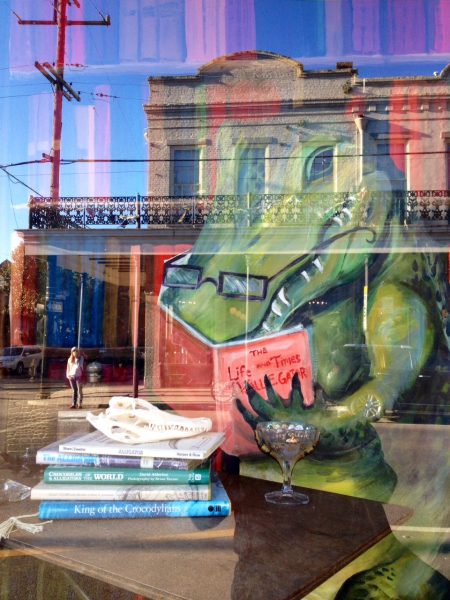I’ll admit I suffer a bit from Franco fatigue, so it was such a pleasure to read “Memory,” where his appearance felt strange and fresh and didn’t overpower the story. So why James Franco? How’d he end up in this piece?
I’d agree with you—I also suffer from Franco fatigue. I’m writing a manuscript about Franco right now, initially as a take-down: I was sick of the man, period. But as I’ve written, I’ve developed empathy for the character. He seems desperate/flailing, at least in my fictional rendering. In one piece, he helps start World War One; in another, he blows up a sculpting studio (in a barn) and injures a lot of goats. Still, I’ve almost quit several times, too, because I again get ill of James Franco. So it fluctuates.
The narrator’s exaggerations in “Memory” are truly lovely. Are you prone to exaggeration? Do you think it’s a useful trait for writing fiction?
Well, the hyperbole is just a technique. See, the real challenge—and why I’m sticking with the book manuscript; I like challenges—is to actually write about James Franco without relying on easy defaults. So I have to find ways to actually pull it off in the face of enormous Franco fatigue (I like your phrase). So I use A LOT of techniques. Hopefully, the language of this text actually overcomes/transcends the subject matter.
Tell me a bit about how you title your work. What do you like to see titles doing (or not doing) in flash fiction (or fiction in general)?
I write with a working title, then, once finished, go back and re-title. Titles are VERY important to flash, just like with poetry. You don’t get many words, so you have to do a lot with your title, as in gain interest, add context or situation, add connotation, etc. I always admire a really strong title. Also, it’s an intellectual game to come up with a satisfying title. I mean it’s sort of fun. One of my favorite titles actually comes from Smokelong Quarterly—”Me and Theodore Are Trapped in the Trunk of the Car with Rags in Our Mouths and Tape Around Our Wrists and Ankles, Please Let Us Out” by Mary Hamilton.
What’s your favorite flavor Pop-Tart? Icing or no icing? Thoughts on Toaster Strudels?
I don’t eat Pop-Tarts. I eat nachos.
What book or story should everyone be reading as soon as they finish this interview?
Wow, that’s tough. I’m going to go with Field & Stream magazine and A Book of Luminous Things, a poetry anthology edited by Czeslaw Milosz.



 The core workshop of SmokeLong Fitness is all in writing, so you can take part from anywhere at anytime. We are excited about creating a supportive, consistent and structured environment for flash writers to work on their craft in a community. We are thrilled and proud to say that our workshop participants have won, placed, or been listed in every major flash competition. Community works.
The core workshop of SmokeLong Fitness is all in writing, so you can take part from anywhere at anytime. We are excited about creating a supportive, consistent and structured environment for flash writers to work on their craft in a community. We are thrilled and proud to say that our workshop participants have won, placed, or been listed in every major flash competition. Community works.